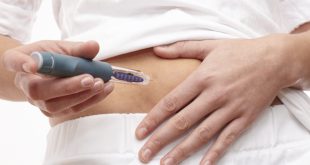Transitioning from pediatric to adult care can be exciting and also an unknown, which can be scary for the 18-year-old and their parents or caregiver. This transition process in most cases involves changing members of the diabetes care team and location. Moving from a family-child-centered care model to a patient-centered medical model of care occurs even when the person may not be emotionally and/or cognitively ready for the move.
With this understanding, it is very important to become aware of what type of adult diabetes program may be best suited to the18-year-old’s personality and learning style. Some adult programs are establishing diabetes clinics especially for the transition population. These programs are aware of the problems that arise if there is no trusting working relationship with the 18-year-old and the diabetes healthcare team. Other programs may not have this component but have a very involved empathic medical team. Also some programs will schedule medical appointments around the individual’s schedule and provide email, texting and tweeting communicative strategies to keep in contact with the person with diabetes.
The main problem is when individuals with diabetes lose connection with the adult diabetes healthcare team and medical follow-up. They do not become involved with the diabetes medical team until they experience an episode of diabetic ketoacidosis (DKA) and end up in hospital.
At the time of transitioning, 18-year-olds are usually experiencing other changes as well. Either going away from home to work or furthering their education. These changes can be emotionally stressful for anyone. With adding the diabetic management onto the newly added demands, sometimes their diabetes management becomes secondary to relocating, establishing new friendships, working, studying, and experimentation: alcohol, drugs, and sexual relationships. There may be increased financial responsibilities and a need to cover medical supplies.
The following is a checklist to help prepare a young person for the transition. Think about these areas:
Transitioning Checklist
Going Away to School
Management at school:
- Being on your own – who will be your support system, maybe inform someone in residence that you live with diabetes and how this person can help you.
- Living with a roommate (see my blog Sharing your diabetes information with your roommate)
- How best to handle stress: exercise, deep breathing, seeing a counselor at the student centre
- Class schedule & impact on your current management
- Exam schedule & impact on your current management
- Will you be eating from a meal plan at school or shopping and prepping food yourself?
- Physical activity changes
- Impact of sex, street drugs & alcohol on diabetes management
Medication & Supplies and Medical Appointments:
- Financial: Medication and supply coverage (University/College student or family insurance coverage?)
- Who will purchase the supplies and medication?
- Do you have access to safe storage of medications & supplies?
- Any planned changes in insulin regimen at school (NPH, Long acting + MDI or Pump)?
- Will you keep your diabetes team where your home base is or transfer services to your new home?
- Who will make the medical appointments?
New Job/Living On Your Own
How is the current management taken care of?
Being on your own without physical parental guidance (parents may feel loss of control)
- How best to handle stress: exercise, deep breathing, seeing a counselor
- Work schedule & impact on your current management
- Living with a roommate
- Physical activity changes
- Shopping and prepping food yourself
- Impact sex, street drugs & alcohol on DM
Medication & Supplies and Medical Appointments:
- Financial: Insurance coverage for medication & supplies
- Insulin pump; Glucose testing strips
- Do you have access to safe storage of medications & supplies?
- Any planned changes in insulin regimen while working (NPH, Long acting + MDI or Pump)?
- Will you buy supplies at place of work or bring from home?
- Will you keep your specialist here or transfer services?
Being an 18-year-old is a very exciting time with new changes. These changes plus living with diabetes can all work well together. Make sure the young person in your life knows that being aware of the challenges and communicating with the diabetes healthcare team and the support group can make it work.
 Diabetes Care Community Learn, connect and care
Diabetes Care Community Learn, connect and care




